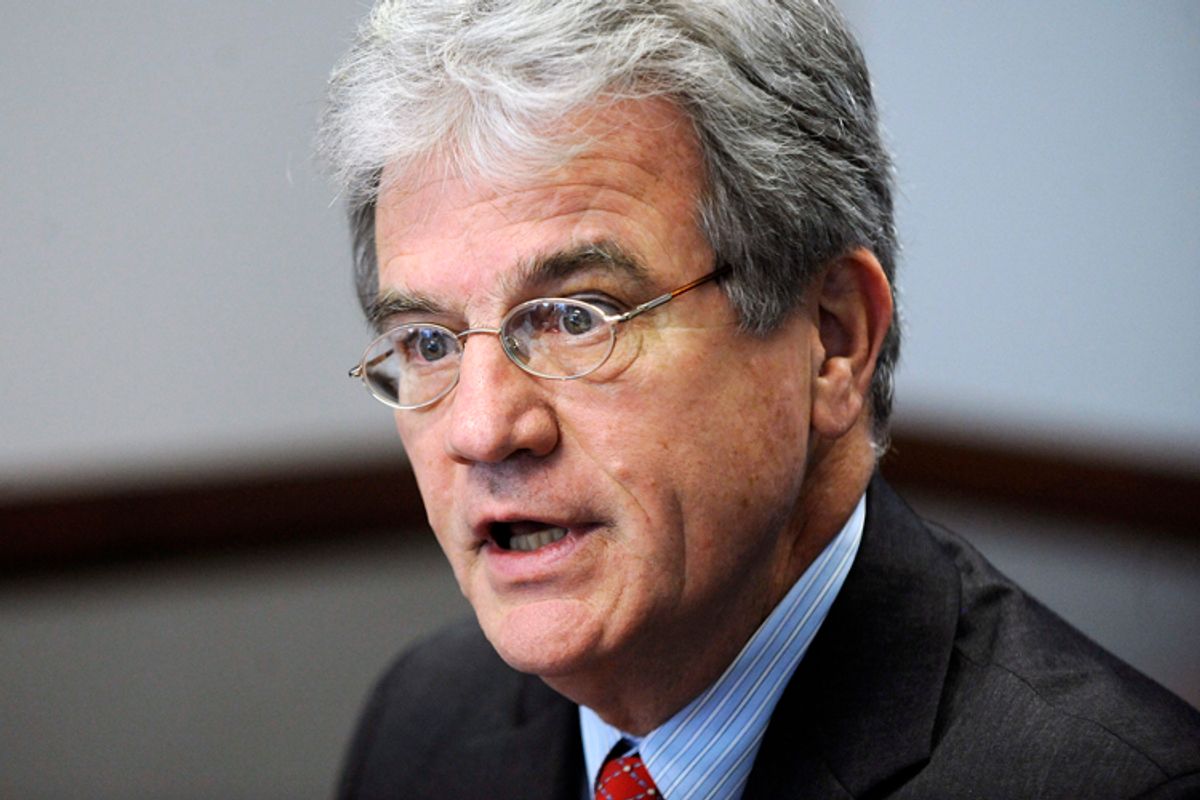On Tuesday, right-wing Twitter exploded with sympathy and anger for retiring Sen. Tom Coburn, R-Okla., after he revealed that his cancer physician isn't part of his new Affordable Care Act insurance plan's provider network.
Conservatives pounced hungrily on Coburn's misfortune, casting aside their concern for factual detail in the ensuing feeding frenzy. Here, for instance, we're told that "four-time cancer survivor [Coburn] loses cancer doctor thanks to Obamacare," when the linked article clearly states, "Coburn will continue to pay out of pocket and see his oncologist."
But what rankles more than the opportunistic indifference to detail is the gleeful dismissal of context, or worse, the proactive effort to delegitimize context, without which this particular story's meaning changes entirely.
[embedtweet id="428215445817008128"]
I don't mean to trivialize Coburn's circumstances. It goes without saying that nobody should have to suffer through cancer -- and as unfortunate as it is for him to lose insured access to his oncologist, I'm glad he can afford to pay for the care of his choice out of pocket.
But there is a crucial context to this story and the people leaving it out of their outraged reactions are doing so on purpose, to mislead you.
There are plenty of people in the United States who have lost their physicians because their provider networks have become unexpectedly more restrictive. It happens frequently. Some of those people may well find themselves in that position because of Obamacare, and when conservatives solicit their stories to extract a political price from Democrats, it's fair game.
But Tom Coburn isn't one of those people. Coburn's transition from his old group healthcare plan into the Obamacare exchanges was something he and the rest of the GOP insisted on, both for himself and for all other members of Congress. If keeping his existing provider network was more important to him than making a political point, he would have noted at some point in 2009 that it was stupid and punitive to single out Congress as the sole employer in the country required to end its participation in a large group plan. Instead he tried to broaden the scope of the requirement so that nobody working in a congressional office could keep their old insurance.
So it's pretty rich for him, and all of his supporters in that effort, to turn around and bemoan the fact that his insurance has become less generous. But more to the point, Coburn is the exception that proves the rule. Generally, the exchanges aren't for people transitioning out of existing group plans, like the Federal Employees Health Benefit Plan, but for uninsured people, or people on the old individual market, transitioning into a better-functioning, well-regulated system. Many, if not most, of the new beneficiaries will be leaving behind a situation where they had no provider network at all.
There's another potentially important omission here too, and that is that Coburn is 65 years old. He's eligible for Medicare, and perhaps through Medicare his insured access to his oncologist could be restored. I asked Coburn's office if his physician is a Medicare provider, and if Coburn himself is enrolled in that program. I have not received a response.



Shares